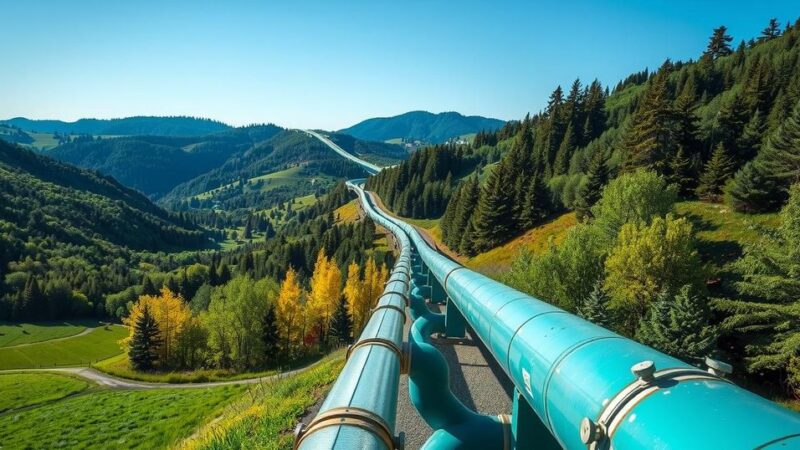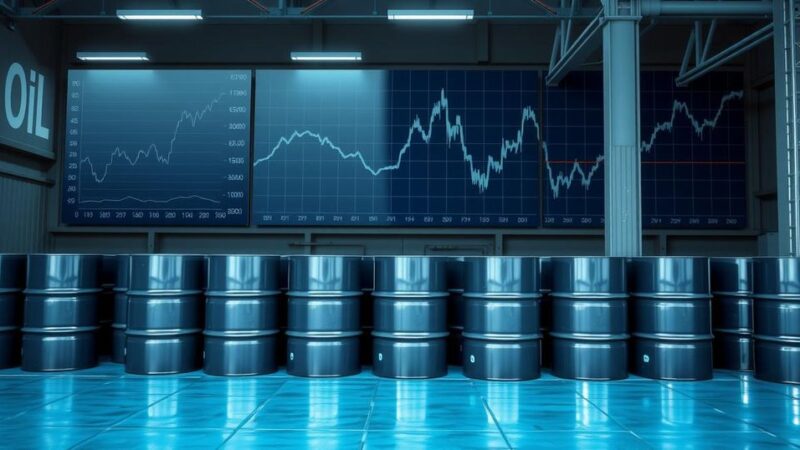Argentina has commenced natural gas exports to Brazil through Bolivia’s YPFB infrastructure, following a three-party agreement. The Brazil-Bolivia Gas Pipeline is expected to scale operations to meet demand. YPFB has reported stabilized fuel supplies in Bolivia’s major cities, amid concerns about pricing and energy distribution.
On Tuesday, it was officially reported that Argentina has commenced the exportation of natural gas to Brazil via Bolivia. Natural gas sales from TotalEnergies originated from the Vaca Muerta field in Neuquén, Argentina, and were transported through the TGN and TGS pipelines to Salta, then through Bolivia’s YPFB network, including the Madrejones pipeline, to Brazil following a tripartite agreement established in late 2024.
The Brazil-Bolivia Gas Pipeline (Gasbol) currently operates with a capacity of 30 million cubic meters per day, although it only functions at 10 million cubic meters presently. Authorities from Bolivia indicated plans to gradually increase capacity over the next five years to meet Brazil’s growing industrial demands. This shift is part of Bolivia’s new strategy to lease its pipelines rather than solely export gas, thus creating revenue and solidifying its status as a vital energy connector in the Southern Cone.
This agreement signifies a revitalization of Argentina’s energy sector, potentially paving the way for future investments in hydrocarbons. The initial gas shipment is established at 2 million cubic meters per day. Concurrently, YPFB President Armin Dorgathen reported that fuel supplies, including gasoline and diesel, in major Bolivian cities such as Santa Cruz, La Paz, and Cochabamba, have stabilized, reducing long queues at gas stations.
YPFB is currently distributing over 7.7 million liters of diesel and 8 million liters of gasoline daily, with additional supplies arriving at the Chilean port of Arica. Dorgathen dismissed rumors regarding his departure from Bolivia, reaffirming that prices correspond with international benchmarks. He defended Bolivia’s fuel subsidy and announced an upcoming forum aimed at elucidating regional fuel pricing.
He also noted that gas previously exported to Argentina will now be redirected to Brazil, where market demand is stronger and prices are perceived as more favorable. In Bolivia’s metropolitan region, fuel availability has improved significantly, with Dorgathen stating, “We have gone from having 100 vehicles in line to only 30.” Furthermore, he mentioned that two more ships are arriving in Arica, with five already prepared for unloading. “That is absolutely false. We continue working in Bolivia,” he stated, aiming to provide transparent information regarding imports and regional markets.
In summary, Argentina’s initiation of natural gas exports to Brazil via Bolivia represents a significant step in regional energy collaboration. This development benefits all parties involved, with Bolivia enhancing its role in energy distribution while Argentina potentially revitalizes its hydrocarbon sector. Stabilization of fuel supplies in Bolivia further reinforces the region’s energy security, as expressed by YPFB officials.
Original Source: en.mercopress.com






